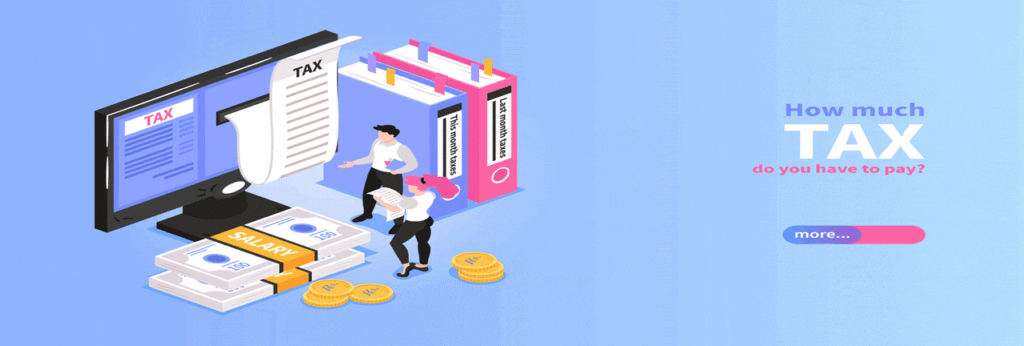
Define of Tax
Home Page: Meaning of Tax is a financial charge imposed by the government on individuals, businesses, or other entities, based on their income, property, or transactions. The primary purpose of taxation is to raise revenue to fund public services and government expenditures such as infrastructure, education, healthcare, and defense.
Introduction to Taxation: Understanding Government Revenue
Taxation is a fundamental component of government finance, serving as a primary source of revenue. This financial charge is mandatory and applies to individuals, businesses, and other entities within a jurisdiction.
Purpose of Taxation: Financing Public Expenditures
The primary purpose of taxation is to generate funds for public expenditures. These funds are essential for financing government activities and services, including infrastructure development, education, healthcare, and national defense.
Taxable Entities: Individuals, Businesses, and More
Taxes can be levied on various entities, including individuals, corporations, and other organizations. The tax burden is distributed across different segments of society based on income, profits, property ownership, consumption, or specific transactions.
Types of Taxes: Income, Sales, Property, and More
Taxation takes different forms, each serving a specific purpose. Common types include income tax, sales tax, property tax, and corporate tax. The diversity of taxes allows governments to tailor their revenue collection strategies to meet specific economic and social goals.
Tax Systems: Progressive, Regressive, and Proportional
Tax systems vary in their structure. A progressive tax system imposes higher rates on higher incomes, a regressive system places a heavier burden on lower incomes, and a proportional system applies a consistent percentage across all income levels.
Tax Compliance: Obligations and Enforcement
Tax compliance is mandatory, and individuals and businesses are obligated to fulfill their tax responsibilities. Governments enforce compliance through tax authorities, which may issue penalties for non-compliance.
Social and Economic Impact: Balancing Taxation
Tax policies can have significant social and economic impacts. Striking a balance between generating revenue for public services and minimizing the burden on taxpayers is crucial for fostering economic growth and maintaining social equity.
Tax Planning and Policy: Adapting to Economic Conditions
Tax planning involves strategic decision-making by individuals and businesses to optimize their tax liabilities. Governments, in turn, formulate tax policies that adapt to changing economic conditions, aiming to encourage investment, mitigate inflation, and stimulate economic development.
The Federal Board of Revenue (FBR) is the main tax authority in Pakistan, responsible for collecting taxes and ensuring compliance with tax laws. The FBR has taken several initiatives to increase tax awareness and improve compliance, such as launching public awareness campaigns, simplifying tax procedures, and expanding the tax net to include more taxpayers.
However, despite these efforts, the tax-to-GDP ratio in Pakistan remains one of the lowest in the world, indicating a significant gap between tax potential and actual tax collection. To address this issue, the government has introduced several reforms, including digitizing tax systems, strengthening tax enforcement, and improving the tax administration.
In addition to the government’s efforts, various non-governmental organizations and civil society groups in Pakistan are also working to promote tax literacy and encourage tax compliance among individuals and businesses. Overall, improving tax compliance and awareness is essential for Pakistan to enhance its revenue collection, reduce its dependence on external borrowing, and promote sustainable economic growth.
Who is Filer?
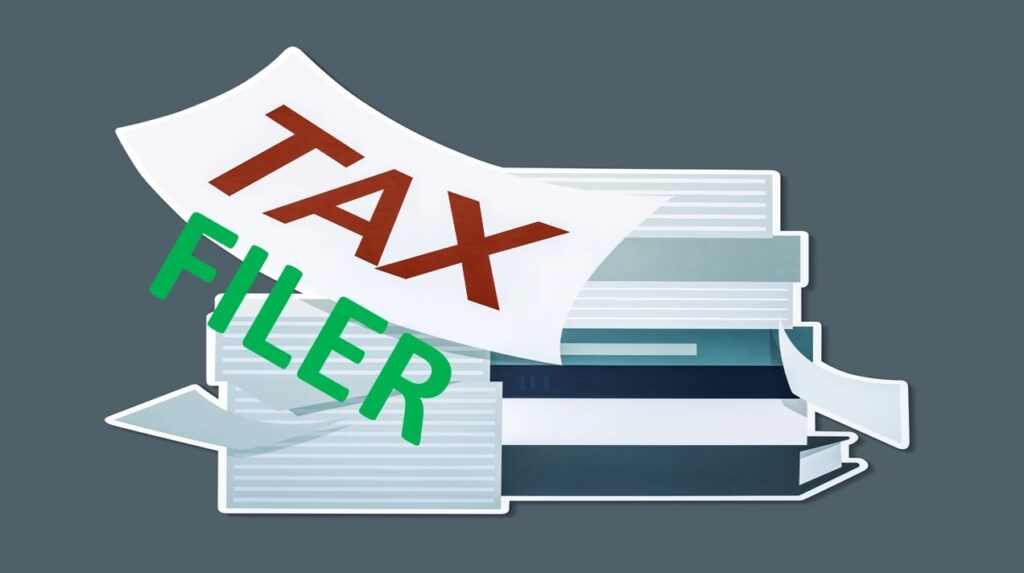
In Pakistan, a filer is a person or entity that is registered with the Federal Board of Revenue (FBR) and has filed an income tax return with the tax authority. Filing an income tax return is mandatory for individuals and companies whose taxable income exceeds the threshold set by the government.
In Pakistan, individuals are required to file tax returns if their taxable income exceeds Rs. 400,000, while companies are required to file returns regardless of their income level. A person or entity that has registered with the FBR and filed their tax return for the tax year is considered a “filer” for that year.
Filing as a “filer” in Pakistan has several benefits, including lower withholding tax rates on certain transactions, eligibility for tax credits and exemptions, and a lower audit risk. Therefore, many taxpayers in Pakistan choose to register with the FBR and file their tax returns to take advantage of these benefits.
Who is Non-Filer?
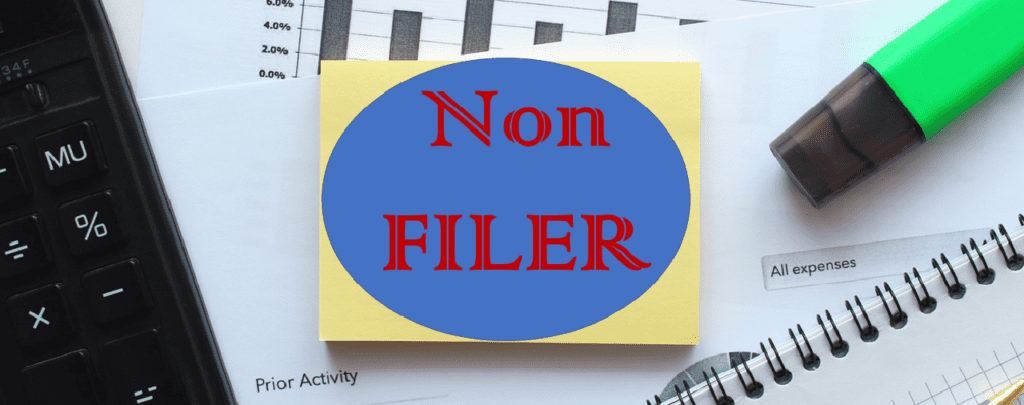
In Pakistan, a non-filer is a person or entity that is not registered with the Federal Board of Revenue (FBR) or has not filed an income tax return with the tax authority. Non-filers are individuals or companies that do not meet the threshold for mandatory filing of income tax returns, or those who are required to file but have not done so.
Non-filers in Pakistan are subject to higher withholding tax rates on certain transactions, such as property sales, motor vehicle purchases, and cash withdrawals from banks. Additionally, non-filers may be ineligible for tax credits and exemptions, and may face higher audit risk.
The Pakistani government has been taking measures to encourage more people to become filers, such as introducing incentives for voluntary registration and making it mandatory for certain transactions to only be conducted by filers. The government believes that increasing the number of filers will help broaden the tax base, increase revenue, and improve compliance with tax laws in the country.
How many types of Tax?
In Pakistan, there are several types of taxes that are imposed by the federal and provincial governments. The main types of taxes in Pakistan are:

- Income Tax
A tax on the income earned by individuals, companies, and other entities. It is a direct tax that is levied on the basis of the taxpayer’s income, and is collected by the Federal Board of Revenue (FBR).
2. Sales Tax
A tax on the sale of goods and services. It is a indirect tax that is collected by the Federal Board of Revenue (FBR), and is levied at different rates depending on the nature of the goods or services being sold.

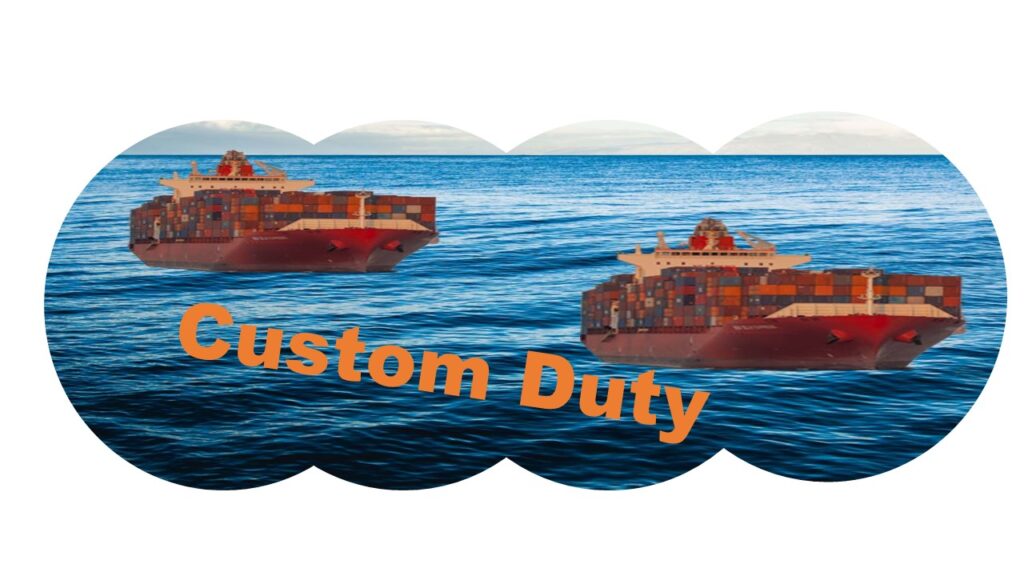
3. Customs Duty
A tax on goods that are imported into Pakistan. It is collected by the Federal Board of Revenue (FBR), and is levied at different rates depending on the nature of the goods being imported.
4. Excise Duty:
A tax on certain goods and services, such as petroleum products, vehicles, and tobacco. It is collected by the Federal Board of Revenue (FBR) and the provincial governments, and is levied at different rates depending on the nature of the goods or services being taxed.


5. Capital Gains Tax
A tax on the profit earned from the sale of assets, such as property, stocks, and bonds. It is collected by the Federal Board of Revenue (FBR), and is levied at different rates depending on the nature of the asset being sold.
6. Property Tax
A tax on the ownership or transfer of real estate. It is collected by the provincial governments, and is levied at different rates depending on the value and location of the property.
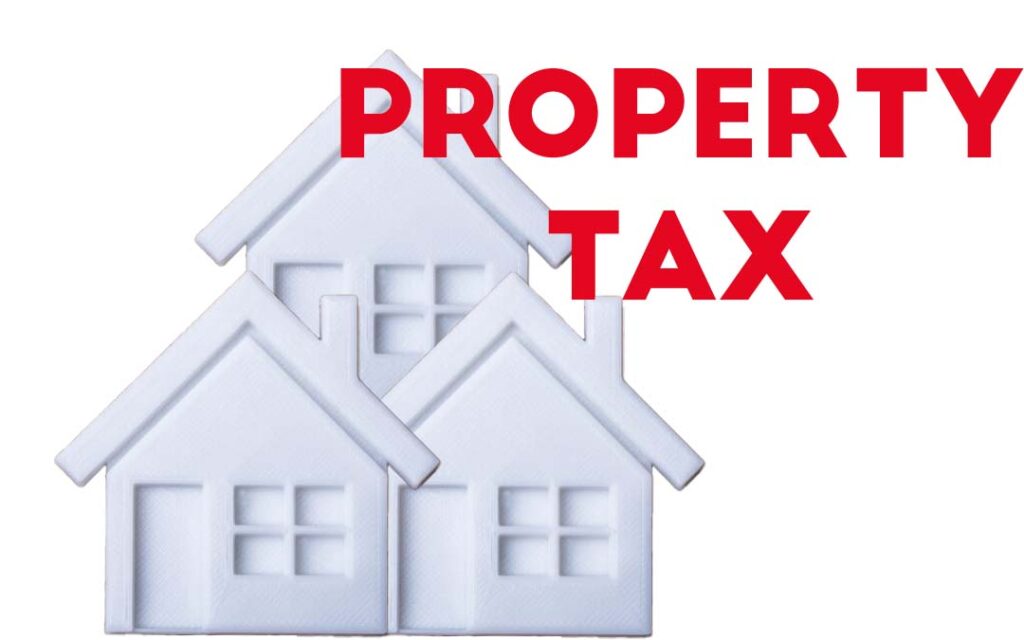
What is Income Tax?
Income tax is a type of direct tax that is imposed on the income earned by individuals, companies, and other entities. In Pakistan, income tax is collected by the Federal Board of Revenue (FBR), and is a significant source of revenue for the government.
The income tax system in Pakistan is based on a progressive tax structure, where the tax rate increases as the income level of the taxpayer increases. Individuals are required to file income tax returns if their taxable income exceeds a certain threshold set by the government, while companies are required to file income tax returns regardless of their income level.
Income tax is calculated on the basis of taxable income, which is calculated by deducting allowable deductions and exemptions from the total income earned. Allowable deductions include expenses such as medical expenses, charitable donations, and contributions to pension funds, while exemptions include income earned from tax-exempt sources such as agricultural income or certain types of investments.
What is Sales Tax?
Sales tax is a type of indirect tax that is levied on the sale of goods and services. In Pakistan, sales tax is collected by the Federal Board of Revenue (FBR), and is a significant source of revenue for the government.
The sales tax system in Pakistan is based on a value-added tax (VAT) system, where the tax is levied at each stage of production and distribution of goods and services. The final consumer ultimately bears the tax burden, as the tax is included in the final price of the product or service.
The sales tax rate in Pakistan varies depending on the nature of the goods or services being sold. There are different rates for basic necessities such as food items, healthcare, and education, while luxury goods and services are taxed at higher rates.
The sales tax system in Pakistan is designed to be broad-based, with a wide range of goods and services subject to taxation. However, there are also certain exemptions and exclusions for certain goods and services, such as exports, education, and healthcare.
Sales tax is a critical source of revenue for the government, and is used to fund public services and government expenditures such as healthcare, education, and infrastructure. However, the sales tax system can also be a source of controversy, with debates arising over the fairness of the tax system, the distribution of tax burdens, and the impact of taxation on different economic sectors and social groups.
What is Custom Duty?
Customs duty is a type of tax that is imposed on goods that are imported into a country from another country. In Pakistan, customs duty is collected by the Federal Board of Revenue (FBR), and is a significant source of revenue for the government.
Customs duty is levied at different rates depending on the nature of the goods being imported. The rate of duty may be based on the value of the goods, the quantity of the goods, or the weight or volume of the goods.
The purpose of customs duty is to protect domestic industries from foreign competition, as well as to generate revenue for the government. Customs duty can also be used to implement trade policies, such as imposing higher duties on goods from certain countries or to encourage the import of certain types of goods.
Customs duty can also be subject to exemptions or reductions under certain circumstances, such as for goods intended for humanitarian aid or for diplomatic purposes.
Customs duty is an important component of international trade and can have significant impacts on the costs and competitiveness of imported goods. It is important for importers to understand the customs duty rates and regulations in order to properly manage the costs and risks associated with importing goods.
What are the Customs duties applicable within Pakistan?
Customs duties applicable within Pakistan depend on the nature and origin of the goods being imported or exported. The following are some of the common customs duties in Pakistan:
- Import Duty: This is a tax imposed on the value of the imported goods. It is levied to protect domestic industries from foreign competition and to generate revenue for the government.
- Export Duty: This is a tax imposed on the value of the exported goods. It is levied to generate revenue for the government and to discourage the export of certain goods.
- Regulatory Duty: This is a tax imposed on the import of certain goods that are deemed to be harmful to the domestic industry or to the environment.
- Additional Customs Duty: This is a tax imposed on the value of imported goods to discourage imports and promote the domestic industry.
- Withholding Tax: This is a tax that is withheld by the importer or exporter and deposited with the government as advance tax on behalf of the supplier or buyer.
The rates of these customs duties may vary depending on the nature of the goods being imported or exported, the country of origin or destination, and the trade agreements between Pakistan and other countries. It is important to consult the relevant authorities or seek professional advice to understand the applicable customs duties before importing or exporting goods
